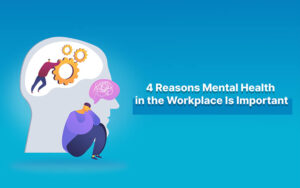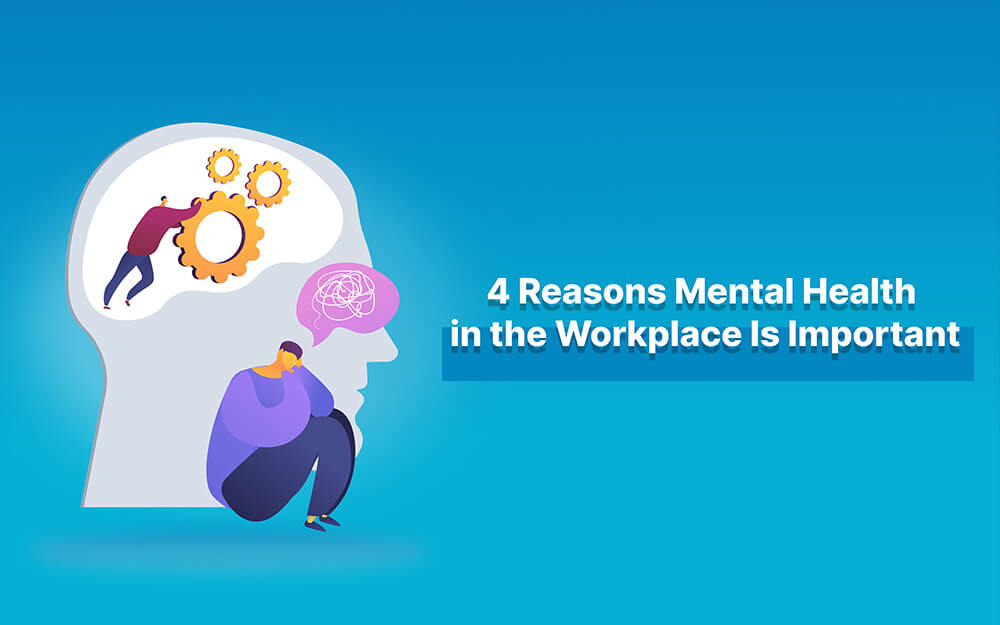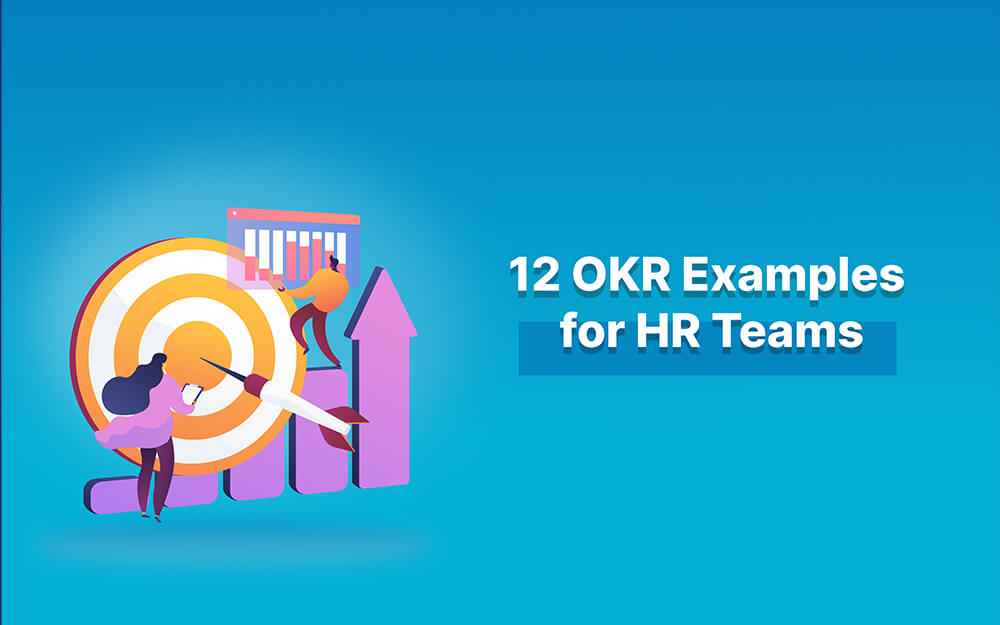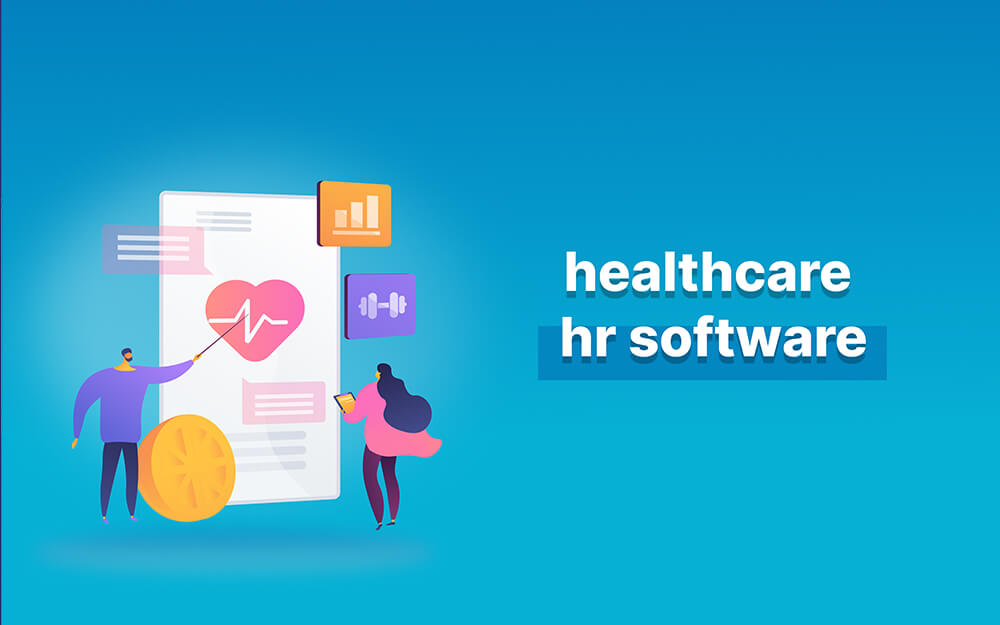4 Reasons Mental Health in the Workplace Is Important
What is mental health at work?
Mental health at work refers to the state of an individual’s psychological and emotional well-being in the context of their employment. It encompasses the overall mental well-being, resilience, and ability to cope with work-related stressors and challenges. Mental health at work involves maintaining a positive balance between the demands of the job and the individual’s capacity to cope with those demands.
In today’s fast-paced and demanding work environments, mental health has emerged as a critical concern. Recognizing and addressing mental health issues in the workplace is not only crucial for the well-being of employees but also for the overall success and productivity of organizations. This blog explores the reasons why mental health in the workplace is of utmost importance, highlighting the benefits of prioritizing employee well-being and providing practical strategies for fostering a healthy work environment.
10 of the Biggest HR Challenges in 2023
1- Enhanced Employee Well-being and Happiness:
Promoting mental health in the workplace contributes to the overall well-being and happiness of employees. When individuals feel supported and valued, they experience greater job satisfaction and are more likely to be engaged and motivated, leading to increased productivity and reduced turnover rates. By prioritizing mental health, organizations create an environment where employees can thrive both personally and professionally.
2- Improved Productivity and Performance:
Mental health issues, such as stress, anxiety, and burnout, can significantly impact an employee’s ability to perform at their best. Conversely, when mental health is prioritized, employees are better equipped to manage stress, maintain focus, and make sound decisions. Investing in mental health support programs and creating a positive work culture can lead to increased productivity, innovation, and higher-quality work.
3 -Reduced Absenteeism and Presenteeism:
Untreated mental health problems often result in increased absenteeism, as employees may need time off to address their challenges. Additionally, presenteeism, where employees show up for work but are unable to perform effectively, is a prevalent issue. By fostering a supportive work environment that encourages open dialogue about mental health, organizations can reduce absenteeism and presenteeism, saving costs associated with lost productivity.
4- Enhanced Employee Engagement:
When employees feel their mental health is prioritized, they are more likely to be engaged in their work. Engaged employees are emotionally invested, enthusiastic, and committed to their roles and the organization’s goals. They are more likely to go the extra mile, collaborate effectively, and contribute positively to the work environment. Prioritizing mental health can, therefore, foster a culture of engagement and boost overall organizational success.
5- Prevention and Early Intervention:
Addressing mental health in the workplace goes beyond supporting employees who are currently experiencing challenges. It also involves proactive measures to prevent mental health issues and identify early warning signs. By promoting mental well-being, organizations can educate employees about stress management techniques, provide resources for seeking help, and implement policies that encourage work-life balance, ultimately reducing the risk of mental health crises.

6- Positive Organizational Culture:
Prioritizing mental health helps create a positive organizational culture that values empathy, compassion, and inclusivity. When employees feel supported and know they can openly address mental health concerns without fear of stigma or discrimination, a culture of trust and psychological safety is fostered. This, in turn, encourages teamwork, collaboration, and creativity, leading to a more harmonious and productive work environment.
7- Attraction and Retention of Top Talent
As mental health awareness continues to grow, job seekers are placing greater importance on organizations that prioritize employee well-being. Companies that actively support mental health are more likely to attract and retain top talent, as potential employees seek environments that promote work-life balance and prioritize holistic well-being. By investing in mental health initiatives, organizations gain a competitive edge in the talent market.
Prioritizing mental health in the workplace is not only a moral imperative but also a strategic decision that positively impacts both employees and organizations. By creating a supportive and inclusive environment, organizations can enhance employee well-being, improve productivity and performance, reduce absenteeism, and foster a positive organizational culture. It is crucial for leaders and HR professionals to implement policies, programs, and resources that promote mental health, ensuring a healthier, happier, and more productive workforce. Ultimately, investing in mental health is an investment in the success and sustainability of the organization as a whole.




